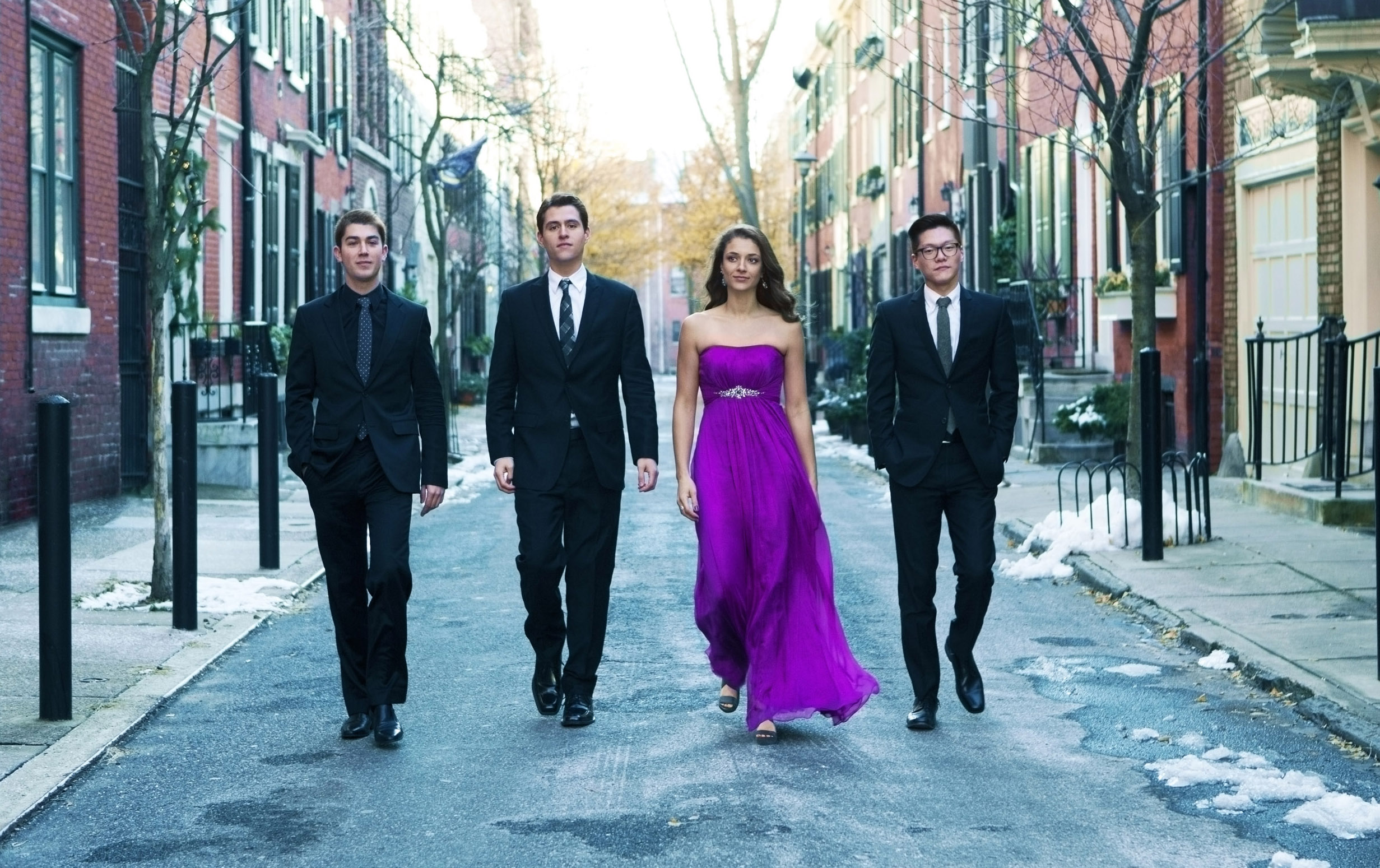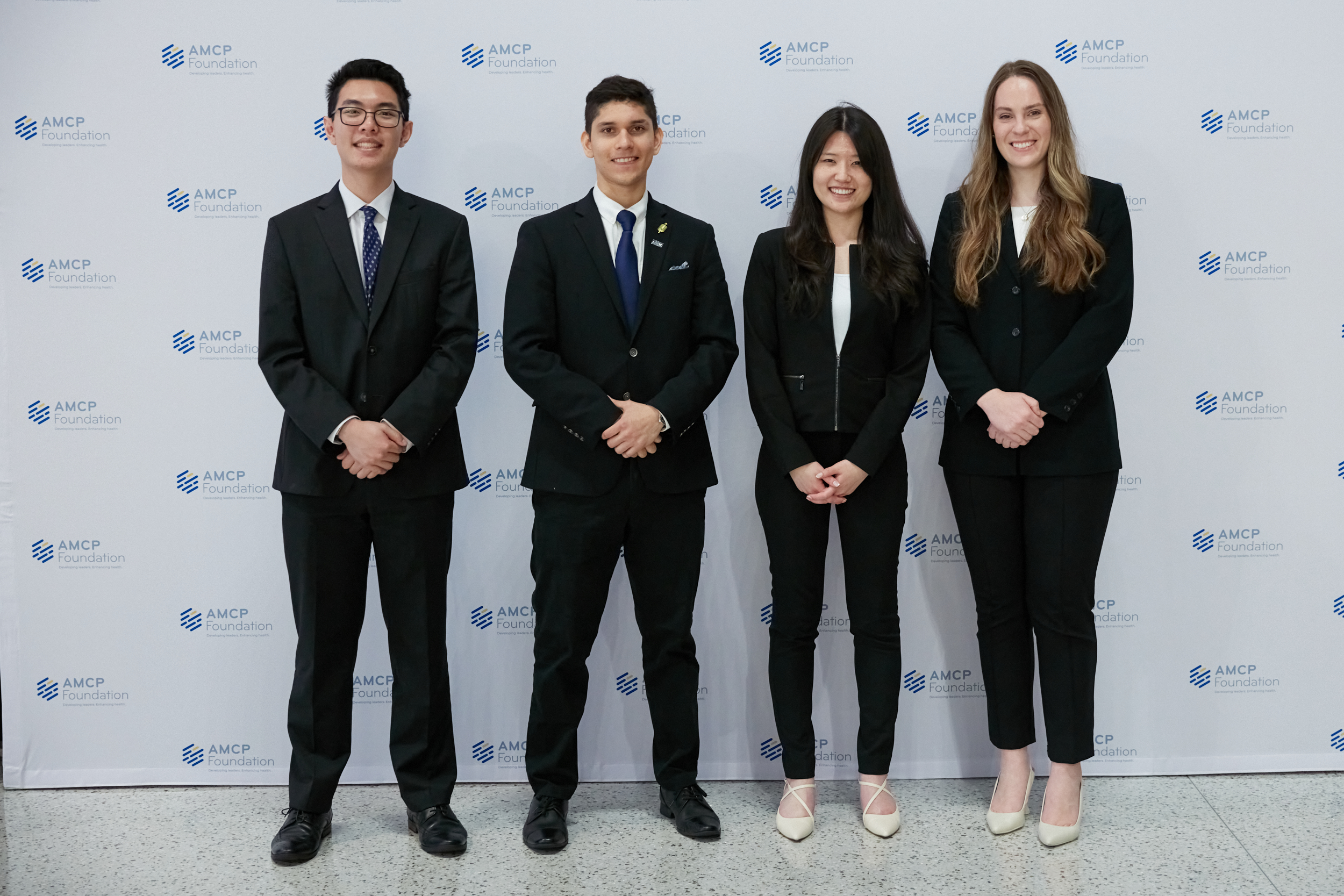UConn’s Jorgensen Center for the Performing Arts announces the return of the award-winning Dover Quartet to perform Parts 5 and 6 of the 6-part complete Beethoven Quartet Cycle, comprising all 18 of the composer’s works for string quartet spread throughout Jorgensen’s 2016/2017 concert season. Having completed Parts 1 through 4 in previous Jorgensen appearances, the Quartet will take the Jorgensen stage for Part 5 of the Cycle on Tuesday evening, April 25, and again on Thursday evening, April 27 for Part 6.
The Dover Quartet’s Part 5 program for April 25 will begin with Quartet in A Major, Op. 18, No. 5, one of the last in a group of six quartets Beethoven composed in his “early” style. The opus 18 quartets, published in 1801, represent a period in Beethoven’s life which is generally considered to be his happiest. The fifth of the set owes much to Mozart’s String Quartet in A major. K. 464. For example, Beethoven modeled the slow variation movement directly on the analogous movement in Mozart’s quartet. The influence of Beethoven’s teacher Haydn is also in evidence, in particular in its frolicking and carefree opening movement followed by a graceful minuet occasionally interrupted by the composer’s whimsical sense of humor.
The Part 5 program will conclude with Quartet in B-flat Major, Op. 130, with the Grosse Fuge (Great Fugue), Op. 133. At the first performance of the B-flat Major quartet in 1826, other movements were received enthusiastically but the final movement, the Grosse Fuge, was not. To please critics and his publisher, Beethoven agreed to write a new finale. However, since the beginning of the 20th century, critical opinion of the Grosse Fuge has risen steadily and the work, numbered as Op. 133, is now considered among Beethoven’s greatest achievements. Numerous quartets prefer to perform Op. 130 with the Grosse Fuge.
For their Part 6 program on April 27, the Dover Quartet has chosen to begin with Beethoven’s Quartet in F Major, Op. 135, Beethoven’s last string quartet as well as his last complete opus in any genre. Finished in October of 1826, only months before his death in March of 1827, the quartet in F Major represents the final work of the greatest cycle of string quartets in history.
Next, The Dover will present Beethoven’s Quartet in C Minor, Op. 18, No. 4, the last of the six Op. 18 quartets written at the end of the composer’s “early period”. The quartet is unique for being the only one of the Op. 18 set to be written in a minor key.
Concluding the Part 6 program will be Beethoven’s Quartet in E Minor, Op. 59, No. 2, one of three quartets commissioned by Russian ambassador Count Andreas Razumovsky, who asked the composer to employ a Russian theme in the compositions; a request which Beethoven honored by inserting elements of Russian folks songs in all three of the “Razumovsky” Quartets.
Composed of violinists Joel Link and Bryan Lee, violist Milena Pajaro-van de Stadt, and cellist Camden Shaw, the Dover Quartet was named as Cleveland Quartet Award winner for the 2016-17 and 2017-18 seasons, and the group was awarded the Avery Fisher Career Grant in March 2017. The Quartet has just released its debut recording, featuring three works by Mozart: his two final string quartets and the Quintet in C minor.
For more information about The Dover Quartet please visit doverquartet.com.
To purchase tickets visit jorgensen.uconn.edu.



